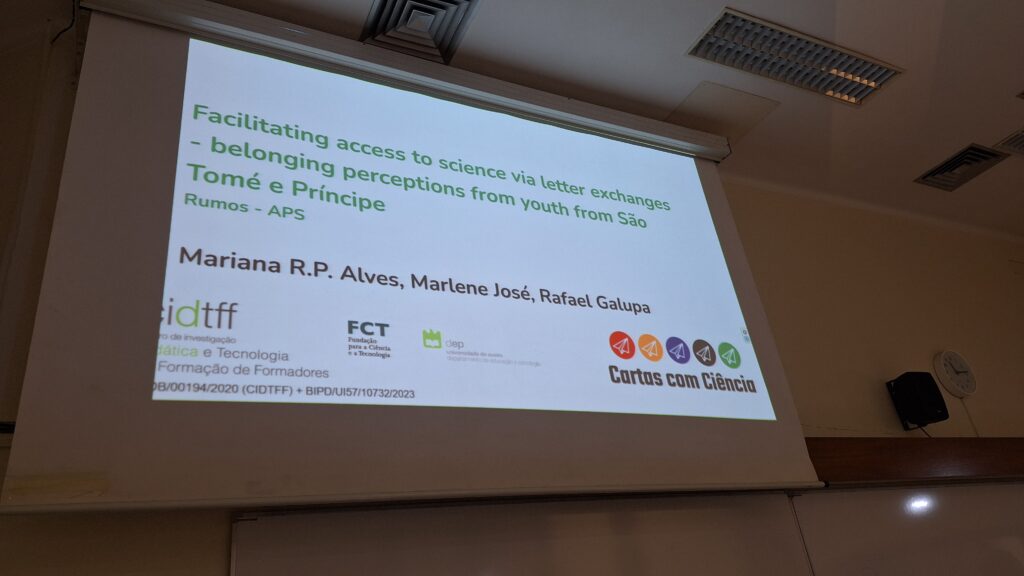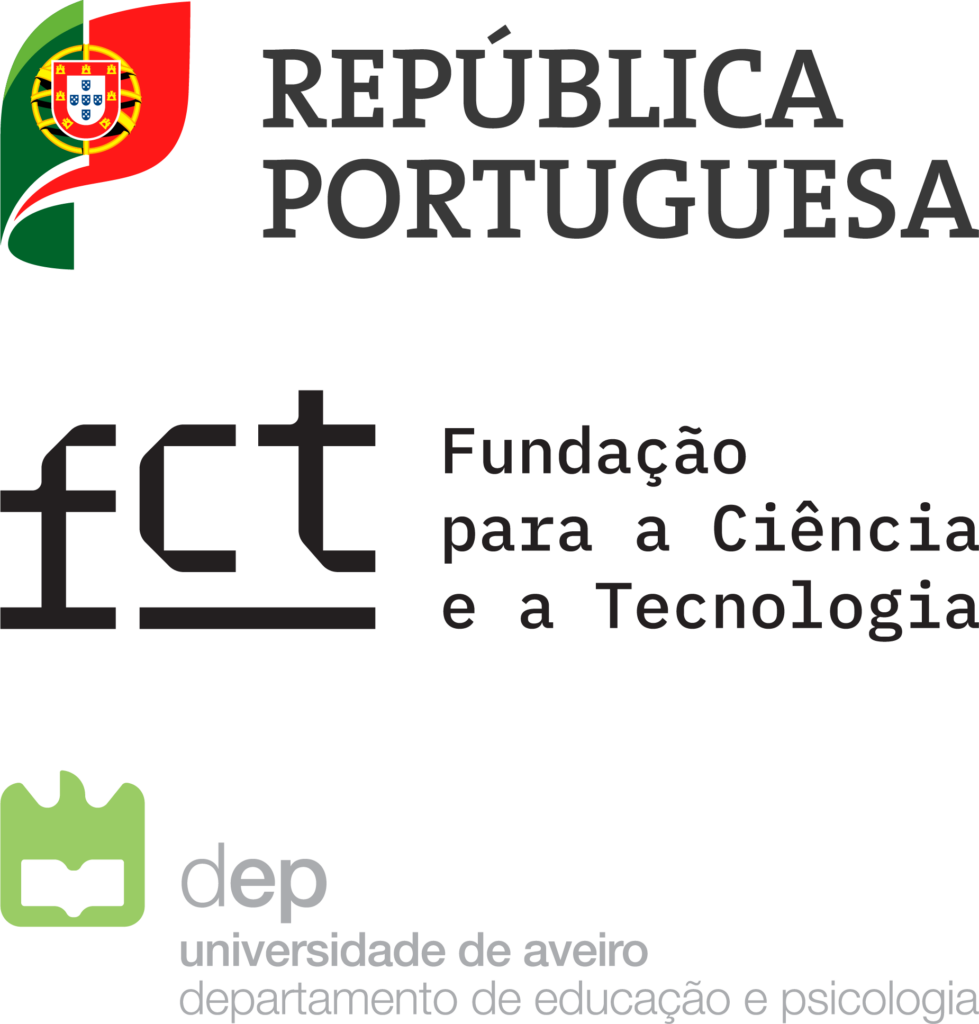A investigadora Mariana RP Alves (CIDTFF & Cartas com Ciência) marcou presença na Escola de Outono e Conferência “Rumos da Sociologia do Conhecimento, da Ciência e da Tecnologia”, que tiveram lugar na NOVA FCSH, em Lisboa de 20 a 22 de Novembro de 2024.
No dia 20 de novembro, a investigadora participou na sessão 2 da Escola de Outono, moderada por Ana Ferreira (CICS.NOVA, NOVA FCSH) com a apresentação “(De)constructing imaginaries and relationships with science and scientists”, em coautoria com Marlene José (Biblioteca Nacional de São Tomé e Príncipe; Escola Secundária da Trindade, São Tomé e Príncipe) e Rafael Galupa (University of Toulouse), debatida por Nina Amelung (Universidade de Lisboa).
No dia 21, dinamizou a comunicação com o mesmo título, integrada na sessão E subordinada ao tema “Tecnologia, ciência e impactos sociais”.
Resumo:
Fostering young people’s relationship with science and technology meaningfully and equitably is essential to resist global challenges and build a future of hope. The number of young people who imagine themselves as scientists, especially from low-income communities, is low, despite their interest in science – partly because they have less access to scientific initiatives and science professionals. How young people perceive science plays an important role, yet literature in Portuguese-speaking countries is still scarce. In this paper we will present a study focused on the perceptions about science of three groups of students from São Tomé and Príncipe, who participated in science education programs, exchanging letters with scientists during one school year. Through questionnaires at various stages of the programs, we collected the impressions of around 80 young people aged between 10 and 16. Our results show that these students are highly interested in science and that up to a third of them consider following a science-related career, even prior to participating in the programme. Our results also indicate that the contact with scientists via the letter-exchange programmes seem to contribute to a (positive) change in the perceptions of students of what science and being a scientist are about, from something more abstract to something more relatable and accessible. We will focus on this aspect and explore what it implicates regarding the building of situated knowledge, relationships and imaginaries with science and scientists. This communication aims to foster a constructive discussion about the (de)construction of attitudes and perceptions towards science and technology in order to build future possibilities where more young people across borders can see their value in science recognized.





